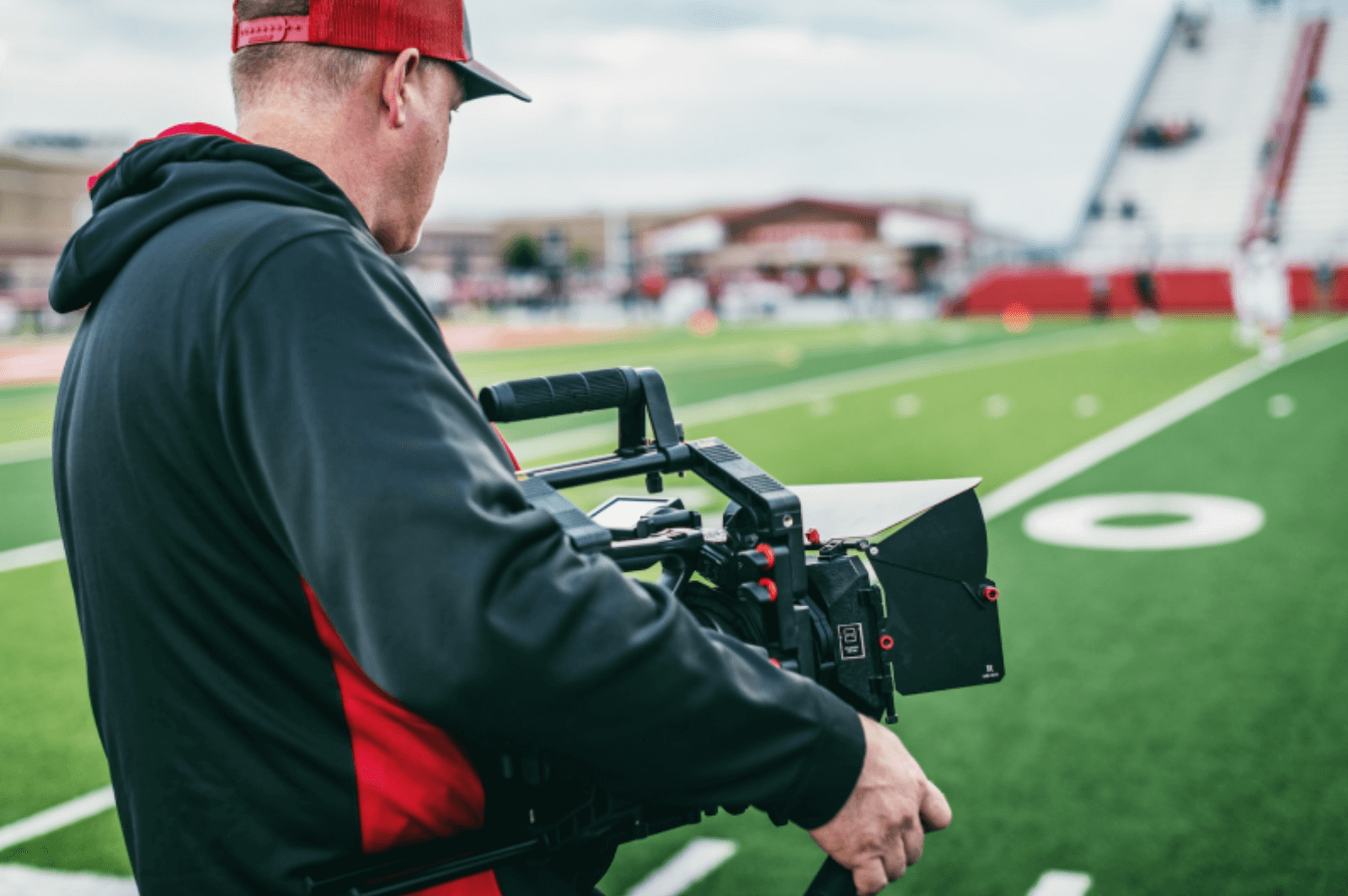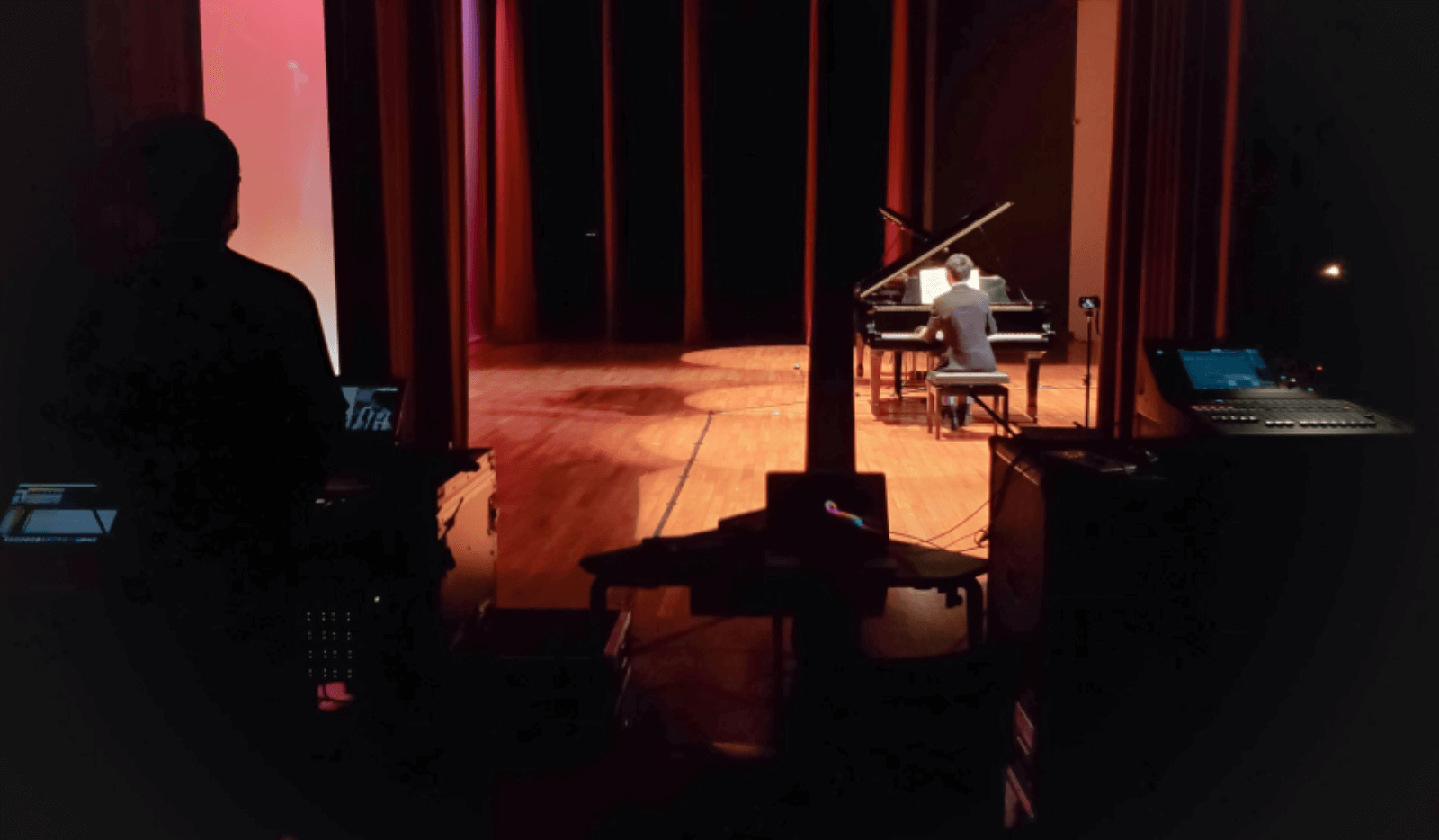Best rundown software for production teams in 2024
• John Barker
For those working in live production teams, every day is a high-stakes game of managing tight timelines, coordinating numerous elements, and minimizing mistakes. Rundown software has become indispensable in this high-stakes environment, crucial for producers and show callers to ensure seamless shows.
No longer just for big-budget teams, today’s market offers a range of affordable, even free, rundown software options. These tools are vital for managing a broadcast, live sports event, news program, or theatrical show, mainly when unexpected changes occur, like extended segments or last-minute script alterations. This article guides you through selecting the best rundown software for various production types, from broadcasting to theater, providing practical tips to enhance your team’s efficiency and success.
The role of rundown software
Teamwork is the backbone of any production, and the evolution from printed scripts and physical cue cards to digital solutions has increased productivity and efficiency. The traditional methods of show calling were prone to errors due to communication gaps, manual updates, and the need to cross-reference different systems.
Rundown software directly tackles the critical issues of production – delayed communication and breakdowns. Unlike basic spreadsheets (e.g. Excel or Google Sheets), it has various features specifically designed to handle live events and show production’s complexities and fast pace.
How does rundown software help in production planning?
Rundown software helps production planning by allowing teams to create and organize schedules, assign tasks, track progress, and collaborate effectively. It streamlines the production process, ensures smooth workflow, reduces errors, and improves overall efficiency across production stages.
Pre-production

During this stage, the focus is on planning and preparation. Workflow efficiency is crucial. Digital tools like rundown software significantly reduce the need for manual adjustments and reliance on physical documents.
- Planning and execution: Multiple users can work on the same document simultaneously, ensuring everyone is always on the same page.
- Script and rundown development: It simplifies the creation of flexible scripts and rundowns that align with technical information.
- Version control for production documents: The team can access one source of truth, eliminating confusion on which script or rundown is up-to-date.
- Team coordination: Changes made in the software are immediately updated, maintaining consistent communication across all departments.
- Rehearsals: Rundown software cuts down on time-intensive manual coordination, freeing up more time for practical rehearsals and technical refinement (and a more polished production!).
Production

During production, the focus shifts to the execution and delivery of the show. Rundown software’s flexible nature enables efficient show elements management and a smoother production process.
- Show running: Producers can manage backstage and technical operations from one platform.
- Real-time decision-making: Gives producers the flexibility and agility to address delays and unforeseen issues in the event flow.
- Adhering to schedule: Helps with keeping the show or event on time, managing overrun segments, and adjusting the schedule dynamically.
- Coordination among team members: Changes made to the software are immediately updated on all devices.
- Professional edge: Using tools designed for the job enhances the team’s efficiency and capabilities and minimizes errors.
- Recording or broadcasting: When recording or broadcasting the show, rundown software aids in seamlessly coordinating necessary equipment and crew.
How to choose the right rundown software
As a producer, finding the right rundown software is crucial for effectively managing live productions’ dynamic nature effectively. Consider these key factors to evaluate options that align with your production’s unique needs.
1. Type of production
Choosing a suitable software starts with understanding the specific needs of your production type. Some tools serve niche markets and industries, with features tailored for specific types of production. For example, news stations and broadcasters require different functionalities than sporting events. News stations prioritize script integration for seamless news delivery, while sports events demand dynamic cueing to keep up with the fast-paced nature of live sports.
2. Complexity & precision of the show
The complexity and precision required for your show directly influence the type of rundown software you need. For complex productions, like live broadcasts with multiple segments, interviews, and cutaways, or theatrical productions with intricate lighting and sound cues, software with detailed segment breakdowns, precise timing controls, and adaptability to last-minute changes are vital. Assess how well the software can handle the specific complexities of your production. For intricate shows, precise timing and quick adjustments are crucial for the overall quality and professionalism of the production output.
3. Team collaboration
Rundown software significantly upgrades team collaboration beyond what static spreadsheets can achieve, offering real-time updates and a unified workspace. In your search for the ideal rundown software, prioritize collaborative features that streamline efficiency and save time. For example, multiple team members’ simultaneous rundown and script editing are especially helpful in keeping live production teams in sync.
Every team has unique work and communication styles, so choose software that offers flexibility and ease in collaboration.
4. Team size
The size of your production team is a critical factor. Larger teams may require software with robust user management and multiple access levels, while smaller teams benefit from more straightforward, user-friendly software. Also, think about your team’s future growth and choose software that can scale with you
5. Budget
When budgeting for rundown software, compare its cost with its benefits to your production. Improved efficiency and minimized mistakes lead to significant time and cost savings. Remember to consider initial costs, add-ons, and any ongoing subscription fees! Free or low-cost solutions are sufficient for smaller productions, whereas larger productions require more customization options and advanced features in pricier software.
6. Downloadable app versus cloud software
Downloadable apps offer offline access, while cloud software provides the flexibility of accessing the rundown from any smartphone, tablet, or computer with internet access. With shareable links akin to Google Docs, cloud-based rundown software takes team collaboration to the next level by allowing seamless, real-time editing and feedback.
7. Features
List the features most important to your production, such as team collaboration, script integration, teleprompting, cue management, or multi-platform broadcasting. Ensure the software you choose includes these features without being overwhelming. Opt for rundown software with essential features you’ll regularly use to avoid overpaying for advanced, unused functionalities.
8. Ease of use
The software should have an intuitive, user-friendly interface with features that fit seamlessly into your production workflow. It should be built with the end-users in mind - the production teams. Compare the various software’s learning curves, ease of navigation, and the availability of customer support.
9. Integrations
Rundown software often integrates with other essential software and tools in the production pipeline, such as broadcasting systems, teleprompters, and audio-visual equipment. Check that the software is compatible with your other production tools, technical planning, and workflow.
💡 As you explore the best rundown software for your team, consider how each option aligns with your specific production needs. We’ll now move on to exploring which rundown software is best suited for various industries and niches.
Best rundown software for broadcasting

In broadcast environments like news and live TV production, efficiency, and quick response are crucial. The pace is fast-paced, requiring teams to adapt to breaking stories or coordinate live segments quickly. Technical precision is vital for managing live feeds and smooth transitions. Broadcast software is critical in ensuring effective coordination and a clear viewer experience.
Features for broadcasting:
- Collaborative, real-time show rundown editing
- Script management
- Automatic timing calculations
- Flexible segment planning and timing
- Prompter/teleprompter feeds for presenters
- Cue timing
- Live streaming
- Integration with broadcasting tools
- For esports, live events, and live streams
Rundown Studio is a cloud-based rundown software for collaborative show planning, cueing, and directing. Teams of all sizes can sync, improvise, and control key production steps with real-time cue editing, department-specific columns, and automatic time tracking. With an intuitive user interface that’s powerful yet easy to navigate, teams can import their existing rundown and get started in minutes.
Shoflo is an end-to-end solution for planning, scripting, prompting, and broadcasting events. It has features that support live streaming and virtual events. The collaborative, cloud-based platform allows teams to plan, create rundowns, make edits on the fly, and stream live events.
Cuez App by Tinkerlist
Cuez App by TinkerList is a rundown and script platform for editing, automated cueing, and prompting. The cloud-based content management app aims to make live production seamless and more efficient with its automation features.
For news and live TV
AP ENPS (Electronic News Production System) is a leading end-to-end news rundown and production software that major newsrooms and media organizations worldwide use. The platform is designed to help journalists create, edit, and distribute content more efficiently.
MediaCentral (formerly Avid iNews)
The AI-powered newsroom system unifies content creation and distribution online, on-air, and social media. Like ENPS, both platforms serve news stations from major networks and local stations. It can be deployed as a cloud solution or hybrid environment.
Best rundown software for sports

Live sports production thrives on quick decisions and flexibility, adapting to its unpredictable and action-packed nature. It demands rapid responses and meticulous organization from the production team. They must possess technical precision and an intuitive grasp of the game’s flow. Rundown software plays a crucial role here, providing real-time updates and streamlined coordination essential for capturing every moment as the game plays out.
Features for live sports production:
- Production planning
- Dynamic cueing
- Collaborative rundown and script
- Automatic timing adjustments
- Supports multiple commentators
- Redlining the current scene in live mode
- Export to teleprompters, MOS, subtitling & closed captioning
Dramatify is an end-to-end mobile production management platform for production teams. The all-in-one production dashboard gives producers an overview of production planning, budgeting, call sheets, audio-visual scripts, technical information, and more.
Best rundown software for shows and events

Show production covers various formats, including TV shows, live music concerts, and multiple forms of entertainment. Events such as conferences, trade shows, worship, and corporate events benefit from rundown software’s coordination and collaborative functionality.
Features for shows and events include:
- Integrated scheduling
- Integrated set and location management
- Flexible, real-time rundown and script editing
- Scene list, stripboards, and running orders
- Teleprompter export
- Cue management
- Show-mode with redlining
- Automatic time adjustments and calculations
- Camera cards
- Episode management
- Integrates with shot lists
For shows
Manage multiple rundowns with Rundown Studio and collaborate effortlessly on rundowns, scripts, graphics, and timing across any device.
CuePilot is a cloud-based broadcast software for live TV shows and events. An automation system made for fast-paced live performances, the app ensures that live camera cuts are caught and delivered with precision.
Rundown Creator is a web-based program for TV, radio, and internet show productions, offering real-time updates and device flexibility. It features detailed timing management, a comprehensive script editor, and teleprompter functionality, enhancing collaboration among production teams.
For events
Stagetimer is a cloud-based professional speaker timer created for event producers and presenters. It is compatible with all devices and web browsers, making it ideal for live and hybrid event productions.
Ontime is an open-source application for managing rundowns and event timers. This free rundown software is currently only available as a downloadable app, and has to be run manually by an operator.
Rundown Assistant is a multi-device, running order management app for events that can control the entire staging from a mobile device or smartphone.
Best rundown software for performing arts

In performing arts production, harmonizing every aspect, from lighting to sound, is essential for an excellent performance. Theater productions, often repeating the same show, blend narrative-driven dialogues and actions with precise synchronization of music, movement, and visuals. Rundown software is an indispensable part of the production, ensuring flawless cue management and scene transitions.
Features for performing arts and theater production include:
- Cue management
- Script changes and version control
- Manage multiple rundowns and stages simultaneously
- Pre-production scheduling
- Technical rehearsal support
- Multi-platform output
- Resource, wardrobe, or inventory tracking
- Integration with other theater production tools and infrastructure
For performing arts and theater
StagePro manages various aspects of producing a show, including planning, breaking down characters by scene, blocking, and calling the show. It is compatible across devices (Apple, Android, web-based), making it a versatile tool for theater production management.
With its focus on production planning and communication, including scheduling tools and production timelines, Propared offers functionalities akin to a rundown sheet. It helps in keeping theater production teams organized and coordinated.
Dramatify streamlines theater production by integrating scriptwriting, scheduling, and real-time collaboration on a single platform. It simplifies organizing rehearsals, managing timelines, and coordinating cast and crew, enhancing overall production efficiency.
VirtualCallboard is a collaborative platform for managing theatrical productions. Designed to improve communication and organization within the theater crew, it helps you to manage schedules, production documents, and cast and crew information in one place.
Summary
For different production types — broadcasting, live sports, news, shows, and theater — selecting software solutions specifically tailored to each environment is crucial. Choose a rundown tool that meets your current needs and can grow with your future projects, enhancing your team’s ability to deliver high-quality content consistently.
The right rundown software depends on factors like production type, complexity, team collaboration, size, and budget, including the decision between cloud-based and downloadable options. Ensure the software aligns with your workflow, boosts team performance, and contributes to a seamless execution of your live event.
